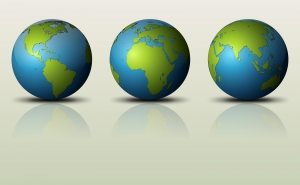

THE storm of patent lawsuits is no longer localised or confined to the United States. Phones, for example, are sold everywhere, so sanctions are being used to pressure companies to pay for patents irrespective of local patent laws. At the same time there are attempts by multinationals to spread patents on everything to everywhere.
China's smartphone companies are at risk of becoming embroiled in disputes over intellectual property rights since many important patents are held by international companies like Google and Microsoft, experts have said.
In 2005, international mobile phone-makers occupied over half the Chinese market. But in 2011, China shipped 455 million mobile phones, among which domestic brands made up 72 percent.
"Facebook is being sued a lot since going public and it makes one wonder who this system serves other than patent lawyers."Brazil has consultation on this matter and New Zealand (NZ) comes under enormous pressure from US lobbyists, leading to postponement of the obvious will/preference of the local software industry. Glyn Moody wrote that "The TPP agreement is believed to require signatories to grant software patents. If the New Zealand government passed the Patents Bill in its current form, and then signed up to TPP, it would be faced with the prospect of needing to amend the legislation almost immediately -- and to justify its actions to the New Zealand public. The fear is that the current delay is so that it can sign TPP and then claim that it is "obliged" to remove the exclusion on software patents, before passing the Patents Bill.
"If that happens, it would be an appalling example of how international trade agreements like TPP, drawn up behind closed doors with no input from the public, can then be used simply to override the democratic decisions arrived at through long and careful national debates."
A group that calls itself NZCS is still at it, pushing back against software patents and multinationals that pressure a foreign government:
While NZ Computer Society CEO Paul Matthews is adamant that there is no firm evidence that the Patents Bill has been “put on ice” owing to negotiation of the Trans-Pacific Partnership trade agreement (TPPA), he says the possibility must give cause for concern.
The Bill, which started its passage in 2008, still languishes well down Parliament’s Order Paper, awaiting consideration of the Commerce Select Committee’s report, followed by the Bill’s second reading.